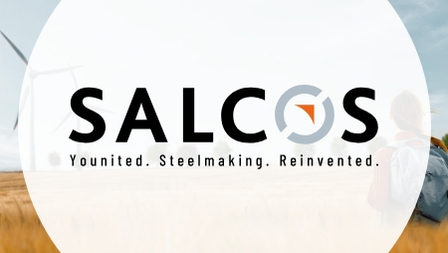Scientific cooperation between the Controlling department at Salzgitter Flachstahl GmbH and the Chair of Production and Logistics at TU Braunschweig
11.05.2022 | Salzgitter Flachstahl GmbH
Salzgitter AG is about to embark on a comprehensive transformation process. With the aid of Project SALCOS (Salzgitter Low CO2 Steelmaking), the company is aiming for a step-by-step reduction in CO2 emissions. Even though Salzgitter Flachstahl ranks among the world’s most energy-efficient steelmakers, nevertheless in the course of steel production in the integrated iron- and steelworks, each year around eight million tonnes of are released – emissions that, given the technical conditions inherent in the process, are unavoidable. By converting production step-by-step to direct reduction plants and electric arc furnaces, direct CO2 emissions can be reduced by approx. 95%. In the final stage, the carbon used up to now as a reduction agent can be replaced entirely by hydrogen. The first stage of development is expected to be implemented as soon as 2025, with final completion of the SALCOS project currently scheduled for 2033.
This fundamental and comprehensive transformation of the company calls for some far-reaching decisions that must be assessed from a business perspective:
- Taking into account both economic and ecological aspects, which installations should at which points in time be constructed or decommissioned?
- What influence does this have on the costs of crude steel production and the company’s concomitant competitiveness?
- How will the planned changes impact on the processes involved in raw steel production in the integrated iron- and steelworks, and on the quantities of raw materials and energy that must be procured?
These questions must be answered not least from a business point of view, in a process that requires extensive quantitative analyses. To this end the Controlling department at Salzgitter Flachstahl has entered into cooperation with the Chair of Production and Logistics at the TU Braunschweig Institute of Automotive Management and Industrial Production (Prof. Dr. Thomas S. Spengler). Together they are developing a decision-making support tool based on dynamic modeling of the processes involved in crude steel production. The goal is to create a scientifically well-founded system of support for future strategic investment decisions in the context of the SALCOS strategy. This will for example allow various expansion scenarios and the influence of variable market developments and political parameters to be evaluated and compared, with a focus on the economic and ecological consequences associated with a transformation to virtually CO2-free crude steel production.
The initial results of this cooperative project have already been published in the form of a joint scientific report in Issue 2/2022 of “Controlling – Zeitschrift für erfolgsorientierte Unternehmenssteuerung” (Controlling – the journal for success-oriented corporate management). The report is entitled “Economically and ecologically efficient transformation of production networks in the steel industry – an activity analysis modeling approach”. As the cooperation progresses, the focus will remain on the interrelationship between science and practice.







